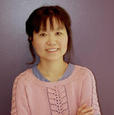Dry eyes result when tears are insufficient, which prevents the eyes from getting proper lubrication. It can be a result of either having less tears or low-quality tears. Tears are composed of fatty oils and water. They prevent the eye from getting infected and keep the surface clean and smooth. Those suffering from dry eyes may have symptoms such as eye redness, blurred vision, scratchy feeling in the eyes, sensitivity to light, stinging, watery eyes, or eye fatigue.
Further, people with dry eyes may find it challenging to drive and to wear contact lenses. Leaving dry eyes untreated is dangerous; it can lead to damage to the eye surface, infections, and a lower quality of life. Therefore, many patients look for treatments such as acupuncture for dry eye in Boston.
Causes of dry eyes
As you grow older, your tear production may decrease. Some medical conditions such as thyroid disorders, lupus, scleroderma, rheumatoid arthritis, vitamin A deficiency, and diabetes may also cause dry eyes. Those who undergo laser surgery for the eye often complain of dry eye for a few months after the procedure. Apart from that, those on medications for acne, acid reflux, Parkinson's disease, birth control, and glaucoma may also be prone to this problem. Dry eyes can also result from higher tear evaporation due to dry air, faster than normal tear film break up, dehydration, allergy medications, less blinking, smoke, wind, and eyelid problems.
Acupuncture for dry eyes
According to the Healthcare Medicine Institute, acupuncture is effective and safe for dry eye treatment. In fact, studies show a total effective rate of 76.92% when acupuncture is used along with eye drops, as compared to 53.85% when eye drops are used alone. With acupuncture for dry eyes, patients enjoy a slower breakdown of the tear film, better film stability, more lacrimal gland secretion, and prevention of ocular surface damage. It's no wonder patients look to acupuncture for dry eye in Boston, Wellesley, Weston, Needham, Dover, West Wood, Dedham, and Newton, because people in those areas read a lot and use computer for many hours a day.
In traditional Chinese medicine, dry eye is often associated with internal organs having a yin and yang imbalance in combination with excess heat. This can lead to hormonal imbalances and inflammatory conditions. Acupuncture improves overall blood circulation and nourishes the blood. Different acupuncture points such as ST2(Sibai), SP6(Sanyinjiao), Taiyang, BL1(Jingming), BL2(Zanzhu), GB14(YangBai), etc., provide various benefits such as removing excess heat and wind, improving ocular qi and blood, and enhancing ocular health. Studies indicate that, when used in combination with prescribed eye drops, acupuncture can greatly improve overall effectiveness and reduce the dosage of the eye drops. Especially for glaucoma, acupuncture not only reduce the dry eye, but also reduce the eye pressure. Leaving dry eyes untreated can result in discomfort, infection, vision problems, and even, eventually, loss of vision. Thus, the best solution is to get in touch with a clinic that offers acupuncture for dry eye in Boston, Dedham, Framingham, Lexington, Newton, Acton, Andover, Arlington, Bedford, Belmont, Braintree, Brookline, Burlington, Cambridge, Canton, Carlisle, Concord, Lincoln, Medfield, Melrose, Malden, Milton, Natick, Sharon, Sherborn, Sudbury, Waltham, Watertown, Wayland, Westwood, Weston, and Winchester. https://www.healthcmi.com/Acupuncture-Continuing-Education-News/1656-acu...
Dr Li Zhenge is the author of this article. Dr Li Zheng is a licensed acupuncturist and herbalist and graduated from the Beijing University of Chinese Medicine. She has 26 years of clinical experience. Jessica Ward is a first-year student in New England Acupuncture School of MCPHS. In this article, she talks about acupuncture for dry eye.

Post new comment
Please Register or Login to post new comment.